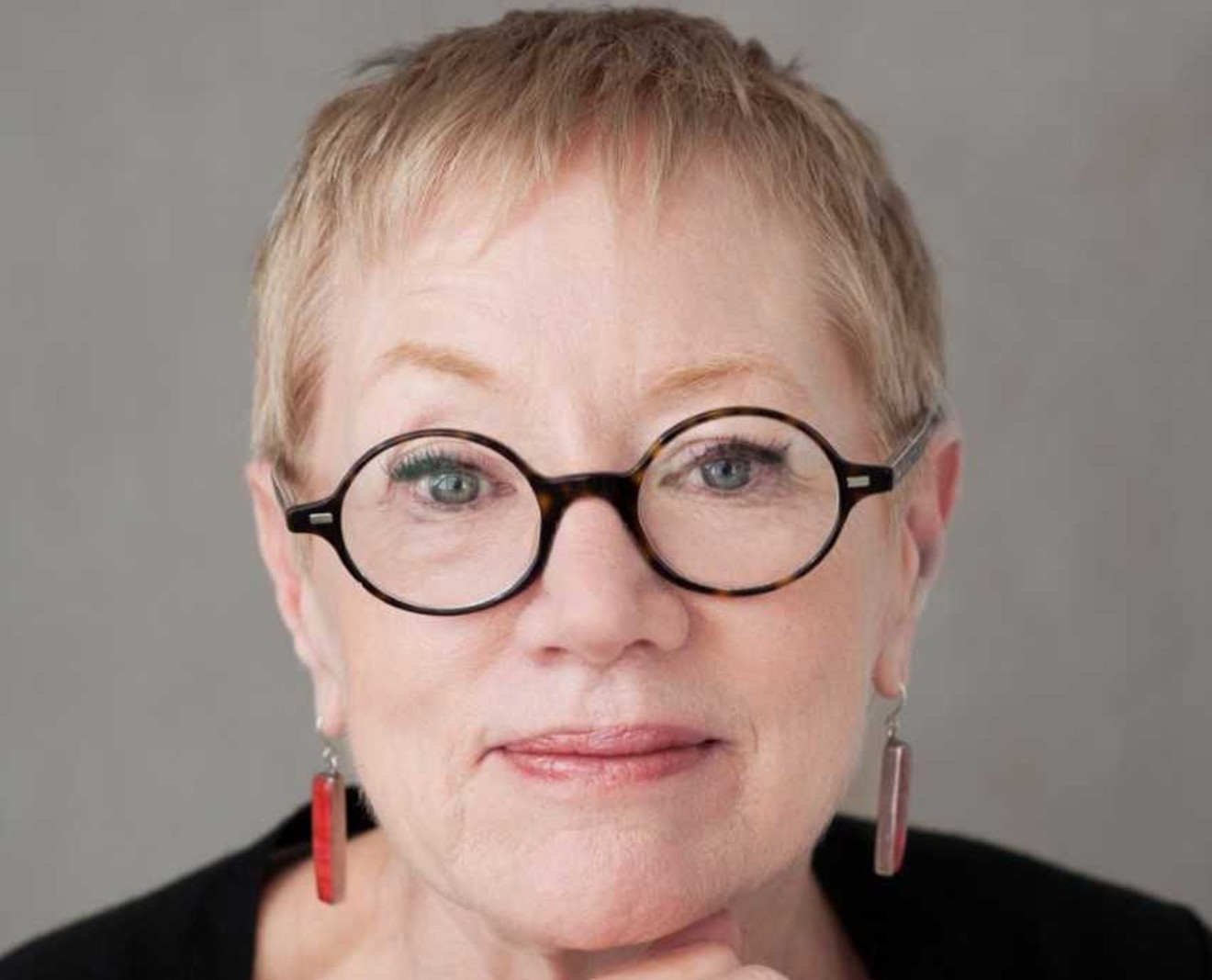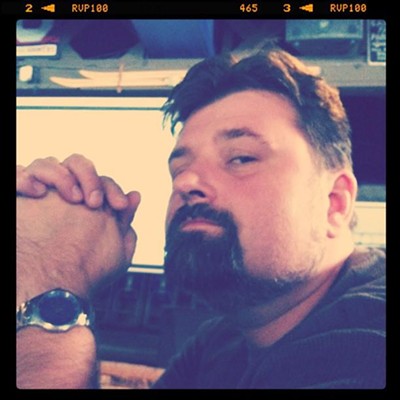Linda Gregerson is an award-winning poet and a noted scholar whose work has graced the pages of some of the finest literary journals. The list of her honors is lengthy and distinct: Highlights include a Guggenheim Fellowship, awards from Kingsley Tufts and the American Academy of Arts and Letters, and most recently an appointment to the Academy of American Poets’ Board of Chancellors.
Gregerson is appearing in Denver on October 11 courtesy of the CU Denver Creative Writing Program’s Reading Series. She spoke with Westword ahead of that event to talk about her work, her past, her books, and the world in which they all come together.
Westword: You're coming to the Auraria campus on October 11 to read and talk poetry with the University of Colorado Denver's Creative Writing Program. Have you had the chance to read in Denver before?
Linda Gregerson: I read once years ago at the marvelous Tattered Cover Bookstore but haven’t been back to Denver in quite some time, although I’ve flown into Denver International a number of times for family visits. My husband grew up in Evergreen. I must say, my impressions of Colorado generally (apart from the sheer thrill of downhill skiing, about which I am wildly enthusiastic in the manner of a forever-incompetent beginner) are filtered through my husband, Steven, who adores the Colorado landscape more than any other.
Your last book was a combination of new and favorite poems called Prodigal. Will you be reading primarily from that book, or are you bringing along any others from your several books over the years?
I’ll be reading partly from Prodigal, perhaps from one or two earlier books, and also from a group of new poems.
This may be like asking which child is your favorite, but given that you've published six books of poetry over the years, do you have a favorite? Or more accurately, one that sticks with you, one to which you keep coming back?
That is rather like asking the loaded rank-your-children question! I won’t say it is my favorite at the expense of others, but I still have a very strong attachment to my second book, The Woman Who Died in Her Sleep, because it was the first book in which I felt I’d found a proper voice.
You've stated in interviews that "the world can be measured by how it treats its children." In the past, you've spoken of tragedies in Serbia and the deaths of Kurdish children. How does this statement reconcile with what America is doing to children at our own borders?
Oh, Lord, I think it’s a terrible indictment of the United States that we should be treating children with such overt cruelty and indifference. We haven’t even kept proper records so that children can be reunited with their families! Who among us truly regards any child as a throwaway? How would I feel if one of my own children were treated like this? It’s unbearable. It’s a terrible, terrible moral stain on our character as a nation.
In a larger sense, and speaking as one of the Chancellors of the Academy of American Poets, what role do you believe poetry can play in the healing of the nation during these times of division, outrage and grief?
We have witnessed in recent years a disheartening and very dangerous corruption of what used to be called civil discourse. We’ve forgotten how to talk to one another; we’ve forgotten how to listen. And as we now see, this noisy emptying-out of — let’s call it by a simpler name — of public conversation is threatening the very structure of American democracy, the system of institutional checks and balances so brilliantly crafted into our constitution. Poetry has a key role to play in restoring our basic ability to communicate with one another. We need to turn the volume down and rediscover the ways in which strong feeling can be challenged and changed by thoughtfulness, the ways in which thought (or what we think we think) can be challenged and changed by openness to the feelings of others. Blessedly, this is exactly what poetry is good for.
Speaking of good poetry, Emily Dickinson once said — and I'm paraphrasing here — that if she feels while reading that the top of her head had been taken off, that's poetry. What poets (or writers in general) have creatively de-craniated you of late?
Where to begin? I’m immensely heartened by the work of any number of my contemporaries. Ross Gay, Shane McCrae, Ellen Voigt, Natasha Trethewey, Beth Bachmann, Bob Hass, Danez Smith, Tony Hoagland, Chris Wiman, Atsuro Riley, Andrew Feld, Monica Youn...the list goes on and on. I am so grateful to these writers and many, many more, whose poems arrive like lifelines in a very dark time.
You grew up in Elgin, Illinois. I wonder how and in what ways the Midwest comes through in your writing?
Ah, this is why brief bios can be misleading. I was born in Elgin, because Sherman Hospital was the only hospital for miles and miles around. But I grew up in the much smaller town of Cary, Illinois — population 2,000 or thereabouts when I was in high school. Shopping trips to Elgin were rather a big deal when I was growing up. We’d go for new school shoes in the fall (Stride Rite!) and we’d stop at a restaurant for lunch on the way home. I’m afraid I don’t remember the name of the restaurant in question, but near the front door stood a large wooden rooster on which we children were allowed to sit. Once inside, I always ordered the same thing — fruit salad — and you could choose to have it with either a scoop of orange sherbet or a scoop of cottage cheese. I couldn’t for the life of me imagine why anyone would choose the cottage cheese.
But unless the wooden rooster says it all, I haven’t answered your question: I’m a Midwesterner through and through, I think. I couldn’t wait to leave when I was young, and I’m immensely grateful that life (and a job) brought me back over thirty years ago. Even my husband, who pines for the mountains of Colorado, has come to admit a fondness for this part of the country because the people he loves most in the world — our daughters — are grounded in it and love it, too. It’s the people, and that grounding, who matter more to me than the landscape itself, but the landscape of the upper Midwest is like a native tongue. There’s a spatial logic to the family farms — farmhouse, outbuildings, gravel drive — that simply feels like home to me, and a pace at which one passes them at night, on the highway, at 55 miles an hour, that almost certainly affects the pacings I prefer in language.
Since you grew up near Elgin, any memories of Santa's Village Amusement Park from when you were a kid?
Goodness, I’d forgotten all about that! Yes! And it must have been the gift shop there where my mother bought the pair of Santa’s elves — glazed porcelain — that sat on our bookshelves every Christmas.
So what would you want to leave your audience here in Denver with after your reading? What's our poetic takeaway?
I hope they’ll feel they’ve heard a human voice.
Linda Gregerson, 6:30 p.m. October 11, Tivoli Student Union, 900 Auraria Parkway.
[
{
"name": "Air - MediumRectangle - Inline Content - Mobile Display Size",
"component": "12017618",
"insertPoint": "2",
"requiredCountToDisplay": "2"
},{
"name": "Editor Picks",
"component": "17242653",
"insertPoint": "4",
"requiredCountToDisplay": "1"
},{
"name": "Inline Links",
"component": "18838239",
"insertPoint": "8th",
"startingPoint": 8,
"requiredCountToDisplay": "7",
"maxInsertions": 25
},{
"name": "Air - MediumRectangle - Combo - Inline Content",
"component": "17261320",
"insertPoint": "8th",
"startingPoint": 8,
"requiredCountToDisplay": "7",
"maxInsertions": 25
},{
"name": "Inline Links",
"component": "18838239",
"insertPoint": "8th",
"startingPoint": 12,
"requiredCountToDisplay": "11",
"maxInsertions": 25
},{
"name": "Air - Leaderboard Tower - Combo - Inline Content",
"component": "17261321",
"insertPoint": "8th",
"startingPoint": 12,
"requiredCountToDisplay": "11",
"maxInsertions": 25
}
]













